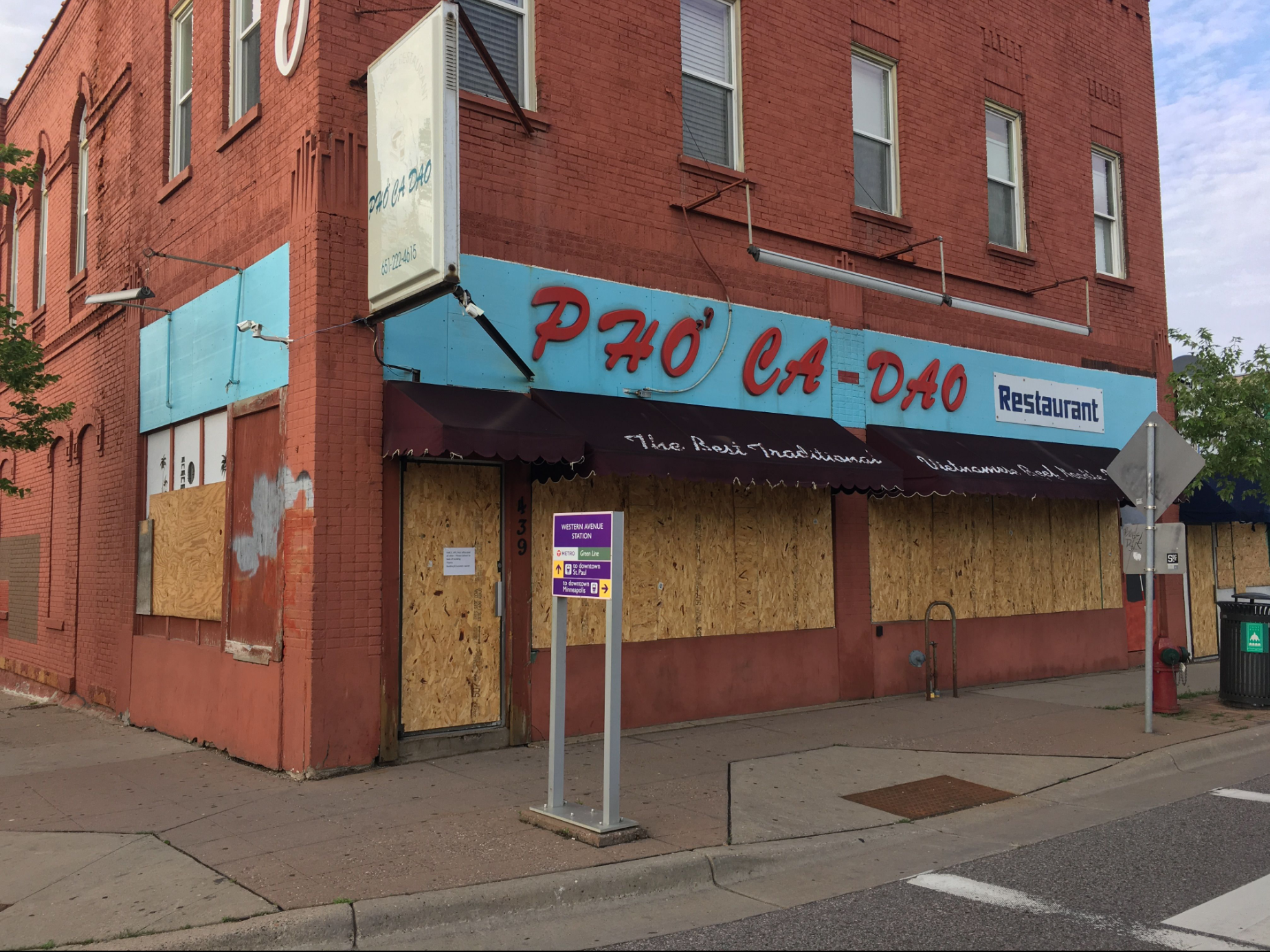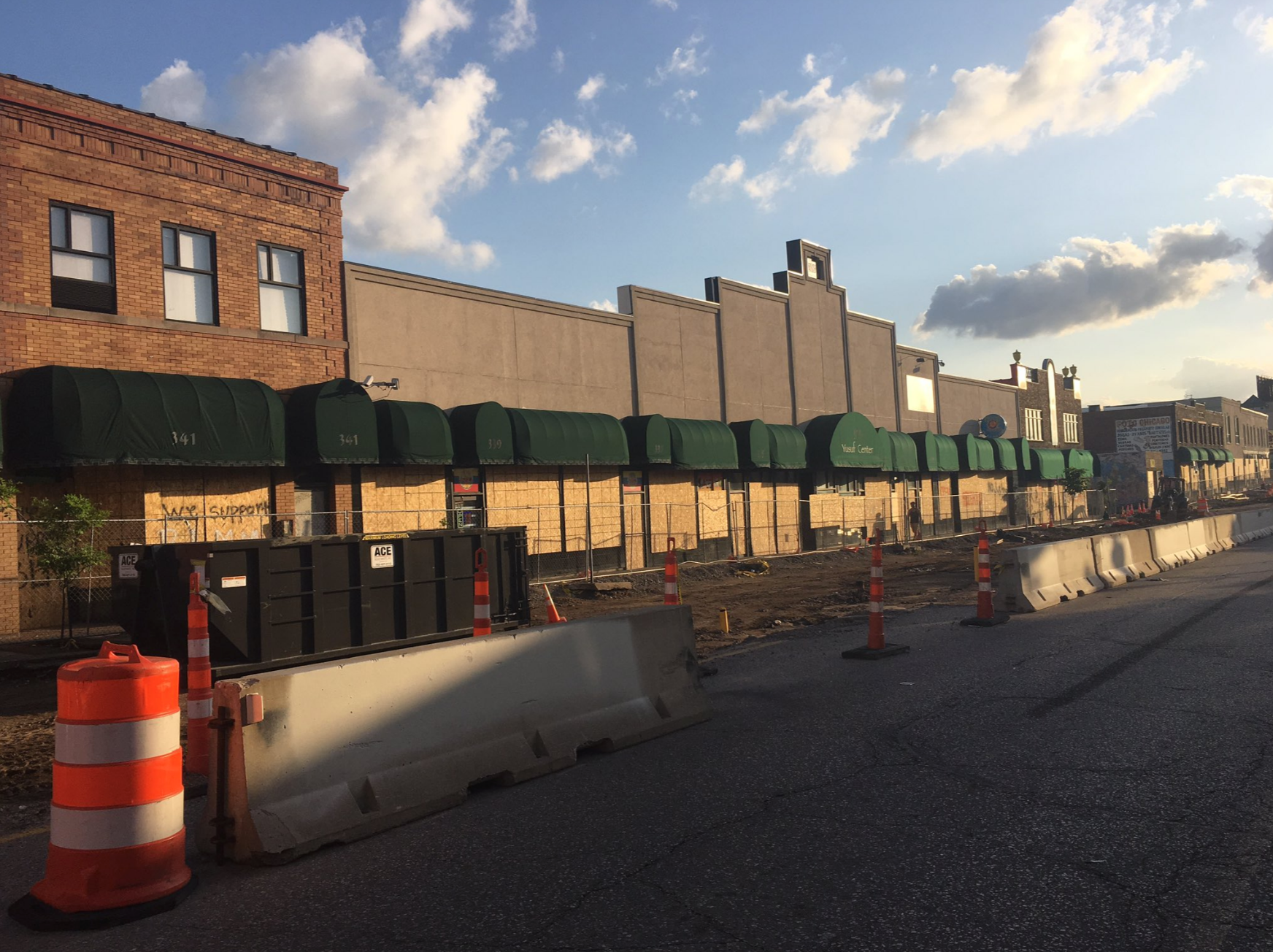

While coordinating its messaging about "mostly peaceful protests" in the wake of George Floyd's death, the media has deliberately ignored the massive destruction of livelihoods and the continuing violence (including large increases in shootings) ignited in its aftermath. It has "privileged" the narrative of white and black radicals over that of the suffering of so many of our fellow Americans in those communities most impacted by the protests.
Progressive writer Michael Tracey has been traveling the country, documenting the impact of the "peaceful protests" in cities and towns nationwide with articles, interviews and photos on his twitter feed and in this article from Medium. He finds the scale of destruction and the impact on lives to be truly terrible and only being covered in some local outlets while being suppressed by the national media. For his efforts he is being denounced by other progressives. From Medium:
We are now approaching the two-month mark since the riots that erupted across the United States in late May and early June. There is a reasonable argument to be made that these riots were unprecedented in U.S. history — or at the very least, since the 1960s. Yet if one surveyed the national media today, you’d barely even know anything happened. Nor would you likely be aware that those who bore the brunt of the destruction — largely minorities whose sensibilities don’t fit into any neatly-delineated ideological category — are still acutely suffering from the fallout.Once again the most vulnerable in our society are paying the price but apparently one acceptable to white and black radicals. The media, academics, NGOs and their wealthy funders don't care either. As Kevin Williamson noted in a June 17 column, The Revolution Comforts The Comfortable:
So many of the people I’ve encountered across the country were perfectly happy to talk about their experiences in the last two months, although many did not want to go on-record for understandable reasons. Still, there would be plenty of fodder here for heart-felt retrospective specials on CNN or in the New York Times magazine about the impact of these historic riots — and yet no such coverage has been forthcoming. It’s quite a puzzle.
Of the dozens and dozens of randomly-selected black Americans that I have so far spoken to across the United States, only two expressed what one might call a “positive” view of the riots, and they were both young men. Everyone else I have encountered is unabashedly scornful of rioting, and many even express apprehensions about the basic logic of a movement referred to as “Black Lives Matter,” which incongruously appears to them to have caused increased suffering in their predominantly black neighborhoods.
There is no revolution in these United States by the poor and the excluded against the rich and the powerful. Instead, there is a civil war among certain members of the broad affluent class against the adjacent affluent cohorts. There is no hatred in this world quite like the hatred of a $100,000-a-year man for a $200,000-a-year man, except maybe the hatred of a $200,000-a-year man for a $200,002-a-year man.And meanwhile the lives documented by Tracey have been altered, in some cases irrevocably and none of the insane ravings of the Woke will change that.
It’s always the same thing: Our newspapers are full of intense interest in Harvard’s admissions standards but have very little to say about New York City’s dropout rate.
George Floyd is still dead. Jacob Frey is still mayor of Minneapolis. Medaria Arradondo is still the chief of police. More than a third of black students will drop out of high school in Milwaukee. But Forbes has announced a change in its in-house stylebook and will henceforth honor the woke convention of uppercase Black vs. lowercase white.
Bennet was pushed out on behalf of marginalized black Americans, which necessitated that Bennet immediately be replaced by . . . a well-off white woman who went to Georgetown and Columbia and won a Pulitzer Prize for writing about that great loathsome theater of American middle-class anxiety: restaurants. (“The real price of inexpensive menu items,” the Pulitzer people summarized.) Well-off white women from elite colleges run the diversity-and-sensitivity racket like the 17th-century Dutch ran the tulip racket, like the De Beers cartel used to run diamonds.
No comments:
Post a Comment